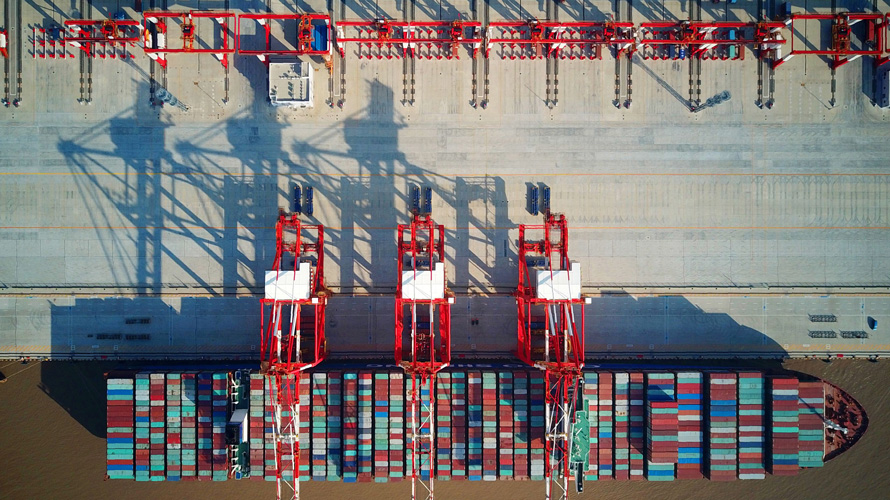
While the Commission will continue to do its utmost to reach a mutually beneficial agreement with the UK, there is now significant uncertainty whether a deal will be in place on 1 January 2021.
The European Commission has today put forward a set of targeted contingency measures ensuring basic reciprocal air and road connectivity between the EU and the UK, as well as allowing for the possibility of reciprocal fishing access by EU and UK vessels to each other’s waters.
The aim of these contingency measures is to cater for the period during which there is no agreement in place. If no agreement enters into application, they will end after a fixed period.
President von der Leyen said: “Negotiations are still ongoing. However, given that the end of the transition is very near, there is no guarantee that if and when an agreement is found, it can enter into force on time. Our responsibility is to be prepared for all eventualities, including not having a deal in place with the UK on 1 January 2021. That is why we are coming forward with these measures today”.
The Commission has consistently called on all stakeholders in all sectors to prepare for all possible scenarios on 1 January 2021. While a “no-deal” scenario will cause disruptions in many areas, some sectors would be disproportionately affected due to a lack of appropriate fall-back solutions and because in some sectors, stakeholders cannot themselves take mitigating measures. The Commission is therefore putting forward today four contingency measures to mitigate some of the significant disruptions that will occur on 1 January in case a deal with the UK is not yet in place:
- Basic air connectivity: A proposal for a Regulation to ensure the provision of certain air services between the UK and the EU for 6 months, provided the UK ensures the same.
- Aviation safety: A proposal for a Regulation ensuring that various safety certificates for products can continue to be used in EU aircraft without disruption, thereby avoiding the grounding of EU aircraft.
- Basic road connectivity: A proposal for a Regulation covering basic connectivity with regard to both road freight, and road passenger transport for 6 months, provided the UK assures the same to EU hauliers.
- Fisheries: A proposal for a Regulation to create the appropriate legal framework until 31 December 2021, or until a fisheries agreement with the UK has been concluded – whichever date is earlier – for continued reciprocal access by EU and UK vessels to each other’s waters after 31 December 2020. In order to guarantee the sustainability of fisheries and in light of the importance of fisheries for the economic livelihood of many communities, it is necessary to facilitate the procedures of authorisation of fishing vessels.
The Commission will work closely with the European Parliament and Council with a view to facilitate entry into application on 1 January 2021 of all four proposed Regulations.
Readiness and preparedness for 1 January 2021 is now more important than ever. Disruption will happen with or without an agreement between the EU and the UK on their future relationship. This is the natural consequence of the United Kingdom’s decision to leave the Union and to no longer participate in the EU Single Market and Customs Union. The Commission has always been very clear about this.
Background
The United Kingdom left the European Union on 31 January 2020. At the time, both sides agreed on a transition period until 31 December 2020, during which EU law continues to apply to the UK. The EU and the UK are using this period to negotiate the terms of their future partnership. The outcome of these negotiations is uncertain.
The Withdrawal Agreement remains in force. It guarantees the rights of EU citizens in the UK, as well as our financial interests, and protects peace and stability on the island of Ireland, amongst many other things.
Public administrations, businesses, citizens and stakeholders on both sides need to prepare for the end of the transition period. The Commission has worked closely with EU Member States to inform citizens and businesses about the consequences of Brexit. It published almost 100 sectoral guidance notices – in all official EU languages – with detailed information on what administrations, businesses and citizens have to do to prepare for the changes at the end of the year.
Since July, the Commission has been carrying out a virtual “tour des capitales” to discuss Member States’ readiness plans.
The Commission has also launched a number of awareness-raising campaigns and intensified its stakeholder outreach over recent months. It provided training and guidance to Member State administrations, and will continue to organise sectoral seminars with all Member States at technical level, to help fine-tune the implementation of readiness measures, in particular in the areas of border checks for persons and goods.





